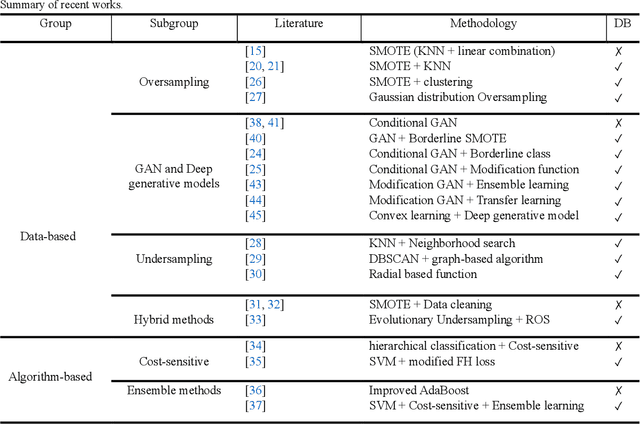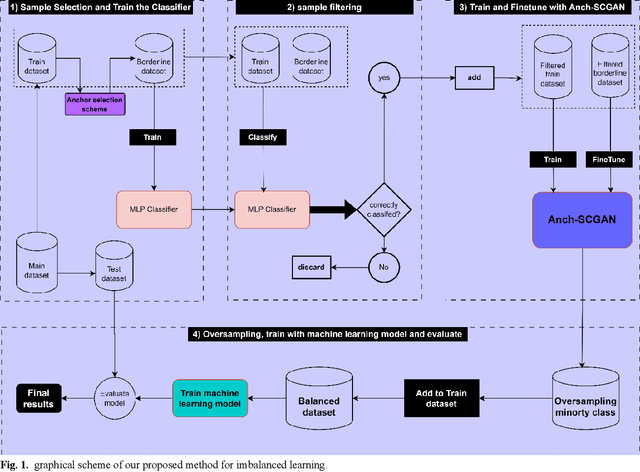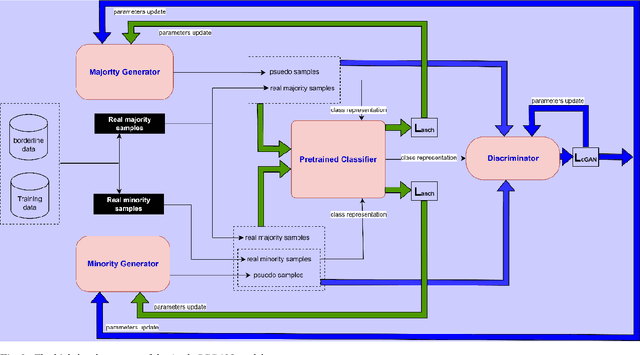Hadi Mohammadi
Evaluating GRPO and DPO for Faithful Chain-of-Thought Reasoning in LLMs
Dec 27, 2025Abstract:Chain-of-thought (CoT) reasoning has emerged as a powerful technique for improving the problem-solving capabilities of large language models (LLMs), particularly for tasks requiring multi-step reasoning. However, recent studies show that CoT explanations often fail to reflect the model's actual reasoning process, as models may produce coherent yet misleading justifications or modify answers without acknowledging external cues. Such discrepancies undermine the reliability of CoT-based methods for safety supervision and alignment monitoring, as models can generate plausible but deceptive rationales for incorrect answers. To better understand this limitation, we evaluate two optimization methods, Group Relative Policy Optimization (GRPO) and Direct Preference Optimization (DPO), in their ability to improve CoT faithfulness. Our experiments show that GRPO achieves higher performance than DPO in larger models, with the Qwen2.5-14B-Instruct model attaining the best results across all evaluation metrics. Both approaches exhibit positive correlations between model size and performance, but GRPO shows greater potential for improving faithfulness metrics, albeit with less stable behavior at smaller scales. These results suggest that GRPO offers a promising direction for developing more transparent and trustworthy reasoning in LLMs.
Assessing the Reliability of LLMs Annotations in the Context of Demographic Bias and Model Explanation
Jul 17, 2025Abstract:Understanding the sources of variability in annotations is crucial for developing fair NLP systems, especially for tasks like sexism detection where demographic bias is a concern. This study investigates the extent to which annotator demographic features influence labeling decisions compared to text content. Using a Generalized Linear Mixed Model, we quantify this inf luence, finding that while statistically present, demographic factors account for a minor fraction ( 8%) of the observed variance, with tweet content being the dominant factor. We then assess the reliability of Generative AI (GenAI) models as annotators, specifically evaluating if guiding them with demographic personas improves alignment with human judgments. Our results indicate that simplistic persona prompting often fails to enhance, and sometimes degrades, performance compared to baseline models. Furthermore, explainable AI (XAI) techniques reveal that model predictions rely heavily on content-specific tokens related to sexism, rather than correlates of demographic characteristics. We argue that focusing on content-driven explanations and robust annotation protocols offers a more reliable path towards fairness than potentially persona simulation.
Exploring Cultural Variations in Moral Judgments with Large Language Models
Jun 14, 2025Abstract:Large Language Models (LLMs) have shown strong performance across many tasks, but their ability to capture culturally diverse moral values remains unclear. In this paper, we examine whether LLMs can mirror variations in moral attitudes reported by two major cross-cultural surveys: the World Values Survey and the PEW Research Center's Global Attitudes Survey. We compare smaller, monolingual, and multilingual models (GPT-2, OPT, BLOOMZ, and Qwen) with more recent instruction-tuned models (GPT-4o, GPT-4o-mini, Gemma-2-9b-it, and Llama-3.3-70B-Instruct). Using log-probability-based moral justifiability scores, we correlate each model's outputs with survey data covering a broad set of ethical topics. Our results show that many earlier or smaller models often produce near-zero or negative correlations with human judgments. In contrast, advanced instruction-tuned models (including GPT-4o and GPT-4o-mini) achieve substantially higher positive correlations, suggesting they better reflect real-world moral attitudes. While scaling up model size and using instruction tuning can improve alignment with cross-cultural moral norms, challenges remain for certain topics and regions. We discuss these findings in relation to bias analysis, training data diversity, and strategies for improving the cultural sensitivity of LLMs.
Explainability-Based Token Replacement on LLM-Generated Text
Jun 04, 2025Abstract:Generative models, especially large language models (LLMs), have shown remarkable progress in producing text that appears human-like. However, they often exhibit patterns that make their output easier to detect than text written by humans. In this paper, we investigate how explainable AI (XAI) methods can be used to reduce the detectability of AI-generated text (AIGT) while also introducing a robust ensemble-based detection approach. We begin by training an ensemble classifier to distinguish AIGT from human-written text, then apply SHAP and LIME to identify tokens that most strongly influence its predictions. We propose four explainability-based token replacement strategies to modify these influential tokens. Our findings show that these token replacement approaches can significantly diminish a single classifier's ability to detect AIGT. However, our ensemble classifier maintains strong performance across multiple languages and domains, showing that a multi-model approach can mitigate the impact of token-level manipulations. These results show that XAI methods can make AIGT harder to detect by focusing on the most influential tokens. At the same time, they highlight the need for robust, ensemble-based detection strategies that can adapt to evolving approaches for hiding AIGT.
Anchor-based oversampling for imbalanced tabular data via contrastive and adversarial learning
Mar 24, 2025



Abstract:Imbalanced data represent a distribution with more frequencies of one class (majority) than the other (minority). This phenomenon occurs across various domains, such as security, medical care and human activity. In imbalanced learning, classification algorithms are typically inclined to classify the majority class accurately, resulting in artificially high accuracy rates. As a result, many minority samples are mistakenly labelled as majority-class instances, resulting in a bias that benefits the majority class. This study presents a framework based on boundary anchor samples to tackle the imbalance learning challenge. First, we select and use anchor samples to train a multilayer perceptron (MLP) classifier, which acts as a prior knowledge model and aids the adversarial and contrastive learning procedures. Then, we designed a novel deep generative model called Anchor Stabilized Conditional Generative Adversarial Network or Anch-SCGAN in short. Anch-SCGAN is supported with two generators for the minority and majority classes and a discriminator incorporating additional class-specific information from the pre-trained feature extractor MLP. In addition, we facilitate the generator's training procedure in two ways. First, we define a new generator loss function based on reprocessed anchor samples and contrastive learning. Second, we apply a scoring strategy to stabilize the adversarial training part in generators. We train Anch-SCGAN and further finetune it with anchor samples to improve the precision of the generated samples. Our experiments on 16 real-world imbalanced datasets illustrate that Anch-SCGAN outperforms the renowned methods in imbalanced learning.
Explainability in Practice: A Survey of Explainable NLP Across Various Domains
Feb 02, 2025



Abstract:Natural Language Processing (NLP) has become a cornerstone in many critical sectors, including healthcare, finance, and customer relationship management. This is especially true with the development and use of advanced models such as GPT-based architectures and BERT, which are widely used in decision-making processes. However, the black-box nature of these advanced NLP models has created an urgent need for transparency and explainability. This review explores explainable NLP (XNLP) with a focus on its practical deployment and real-world applications, examining its implementation and the challenges faced in domain-specific contexts. The paper underscores the importance of explainability in NLP and provides a comprehensive perspective on how XNLP can be designed to meet the unique demands of various sectors, from healthcare's need for clear insights to finance's emphasis on fraud detection and risk assessment. Additionally, this review aims to bridge the knowledge gap in XNLP literature by offering a domain-specific exploration and discussing underrepresented areas such as real-world applicability, metric evaluation, and the role of human interaction in model assessment. The paper concludes by suggesting future research directions that could enhance the understanding and broader application of XNLP.
LLMs as mirrors of societal moral standards: reflection of cultural divergence and agreement across ethical topics
Dec 01, 2024Abstract:Large language models (LLMs) have become increasingly pivotal in various domains due the recent advancements in their performance capabilities. However, concerns persist regarding biases in LLMs, including gender, racial, and cultural biases derived from their training data. These biases raise critical questions about the ethical deployment and societal impact of LLMs. Acknowledging these concerns, this study investigates whether LLMs accurately reflect cross-cultural variations and similarities in moral perspectives. In assessing whether the chosen LLMs capture patterns of divergence and agreement on moral topics across cultures, three main methods are employed: (1) comparison of model-generated and survey-based moral score variances, (2) cluster alignment analysis to evaluate the correspondence between country clusters derived from model-generated moral scores and those derived from survey data, and (3) probing LLMs with direct comparative prompts. All three methods involve the use of systematic prompts and token pairs designed to assess how well LLMs understand and reflect cultural variations in moral attitudes. The findings of this study indicate overall variable and low performance in reflecting cross-cultural differences and similarities in moral values across the models tested, highlighting the necessity for improving models' accuracy in capturing these nuances effectively. The insights gained from this study aim to inform discussions on the ethical development and deployment of LLMs in global contexts, emphasizing the importance of mitigating biases and promoting fair representation across diverse cultural perspectives.
Large Language Models as Mirrors of Societal Moral Standards
Dec 01, 2024Abstract:Prior research has demonstrated that language models can, to a limited extent, represent moral norms in a variety of cultural contexts. This research aims to replicate these findings and further explore their validity, concentrating on issues like 'homosexuality' and 'divorce'. This study evaluates the effectiveness of these models using information from two surveys, the WVS and the PEW, that encompass moral perspectives from over 40 countries. The results show that biases exist in both monolingual and multilingual models, and they typically fall short of accurately capturing the moral intricacies of diverse cultures. However, the BLOOM model shows the best performance, exhibiting some positive correlations, but still does not achieve a comprehensive moral understanding. This research underscores the limitations of current PLMs in processing cross-cultural differences in values and highlights the importance of developing culturally aware AI systems that better align with universal human values.
 Add to Chrome
Add to Chrome Add to Firefox
Add to Firefox Add to Edge
Add to Edge